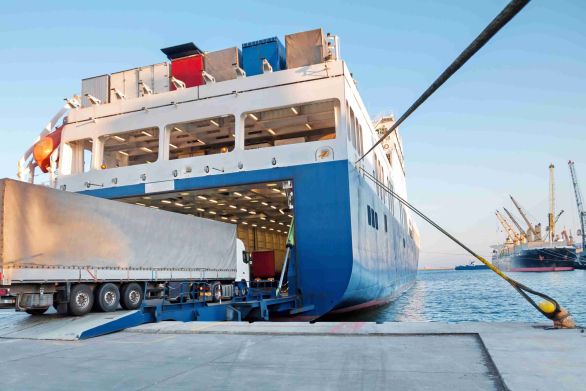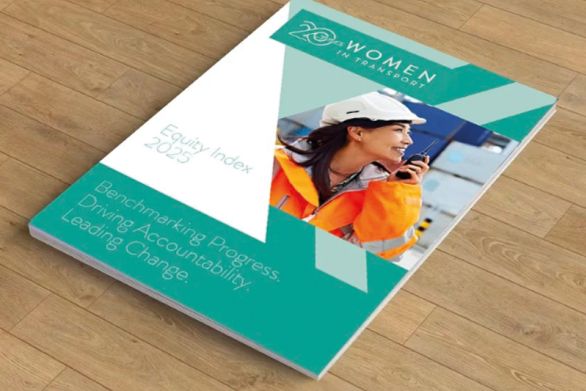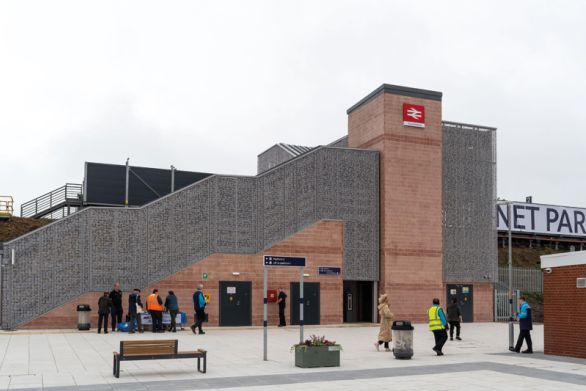 COVID-19 has denied communities, generations, and fans across the globe the opportunity to come together at major events. Heavily immersed in strategic event delivery, we speak to Chris Bryant, Head of Tournament Delivery at The Football Association (FA), to gain insight into Wembley Stadium’s reaction to the pandemic, what’s happening in the next ten years and what lessons can be learned from the Wembley-Quintain partnership model.
COVID-19 has denied communities, generations, and fans across the globe the opportunity to come together at major events. Heavily immersed in strategic event delivery, we speak to Chris Bryant, Head of Tournament Delivery at The Football Association (FA), to gain insight into Wembley Stadium’s reaction to the pandemic, what’s happening in the next ten years and what lessons can be learned from the Wembley-Quintain partnership model.
Having been part of the delivery teams for both the London 2012 Olympic and Paralympic games as well as the 2015 Rugby World Cup, Chris Bryant was hired by The FA to oversee the stadium’s strategic programmes. He is responsible for the delivery of The FA’s obligations around the UEFA EURO this summer and the UEFA Women’s EURO next summer, as well as delivery of The FA and Wembley’s other events, including the National Football League (NFL), concerts and English football’s set-piece events.
Referring to the EUROs, Chris points out that “UEFA has more control and ownership of their events [than other organisers]. However, in this case, The FA acts as both the host association and the host stadium, so we’re tied in at a different scale compared to the other 11 host cities. We not only do the local organising committee planning but also govern all the event management for the stadium.”
Sports and events reaction to the pandemic
Given the huge impact the pandemic has played in the sports industry, we asked Chris about his thoughts around future shocks and what The FA wish they had had in place to minimise COVID-19’s impact. “It’s a difficult one – when we think of sports and major events it’s hard to say if there’s one thing facilities and venues could have had that they didn’t, or if there was a way to quickly implement welcoming fans back. Unfortunately, there’s no controlling a pandemic of this scale.”
Reflecting on how COVID-19 has impacted on events and how it’s brought about a changing landscape, Chris finds it fascinating how COVID-19 has both highlighted the importance of getting the basics right as well as accelerating innovation. “Queuing for bathrooms or food and drink at Wembley has never had more intensive planning; while digital ticketing and contactless payments are not new, stadiums have had to bring forward their plans to advance these systems much faster than anticipated. I will be impressed to see how these fundamentals and new innovations materialise to ensure we can bring fans back as soon as possible.”
The vision for events going forward remains unchanged despite the pandemic - in fact, there may be pent up demand. “Traditionally, interest in sports and ticket buying for hospitality has always performed fairly well during past changing economic situations. We’re projecting a strong 2022,” Chris confidently points out. Chris is very excited by the potential concert line up for summer 2022 and the Women’s EURO final; Wembley will be a centre of celebrations for what we hope is the first summer of normality post-COVID.
Wembley’s 10-year vision
Chris reveals how fortunate Wembley is to have a resilient, core event program from the outset. From football finals to international games, the bedrock of Wembley remains consistent, allowing the team to improve and adapt the stadium’s product and service offerings, such as Club Wembley.
Chris suggests the team wish to host more music events. “We are in the process of applying for additional music event ability, greatly increasing the number of events we host. We are positioned with incredible figures for certain concerts and are unrivalled across both England and Europe. Wembley was built to host massive, mega events and maximising these options in the best way we can is where the real opportunity lies.”
Hosting two UEFA Champions League Finals, the Olympics, the Rugby World Cup and major concerts alongside England and FA Cup matches made Wembley’s first decade very successful. This decade will start with two EURO finals, and the newly installed steps on Olympic Way have made Wembley an even more attractive venue for set piece occasions, improving the level of service to fans as well as the stadium’s aesthetic for locals.
Evolving spectator experience
There are two key areas of change for stadia in the next ten years: digitisation and the drive to net zero carbon. Digitisation is likely to encompass the entire spectator journey from sofa to seat: although this concept has been around for a decade, it is now that implementation is likely to become widespread. This should enable a better spectator experience, as well as providing potential revenue streams through advertising and giving the organisers greater control of how people move to, from and around the stadium.
In terms of sustainability, Chris sees major events as potential drivers of change. “An impactful event like the FIFA World Cup or Olympic Games could potentially drive more change, although the Women’s EURO is not in a position to dictate these changes, nor financially structured in such a way. There’s a limited level of change an event can enforce on a stadium’s way of working, however, we will continue to push for the highest standards at every opportunity and certainly won’t be promoting any activity that goes against driving sustainability,” Chris clarifies. He points to the Johann Cruyff Arena in Amsterdam as a world-leader in sustainability and wider innovation.
Unquestionably, Chris has set foot in a number of incredible events during his career and commends one in particular. “The Superbowl is immense - one match in one venue that has an extraordinary impact on a whole city, rivalling even the Olympics which consists of 33 sports. The sheer size of the event is truly phenomenal; the number of peripheral events through the weeks leading up to the Superbowl and cultural celebrations and music festivals surrounding just one match of sport is incredible.”
Benefits and constraints of the Quintain – Wembley model
Having ample space surrounding a stadium is a privilege, but it is not often realistic. Space is highly valuable in urban areas, and the concept of out-of-town stadia is dependent either on unsustainable car travel or astronomical capital investment. Quintain has developed the land around Wembley since 2002: the Wembley Park estate, enabled by the transport improvements instigated by the stadium redevelopment, is set to become the largest build-to-rent site in the UK, and also comprises the London Development Outlet, the Troubadour theatre and numerous bars, cafes and restaurants. The relationship between Brent Council, Quintain and Wembley has been very successful.
Chris explains, “It is essential to establish a partnership approach with local developers and councils to enable this to happen which is what we have been pushing for with Wembley Park, Quintain and Brent Council over the past few years. The philosophy has massively improved over time. All parties are here to stay, so finding a common ground that works for all is a win-win situation.”
The development has improved the customer experience, as well as helping the transport operation. With so many attractions around the stadium, the problem of fans gathering in Baker Street pre-event and all trying to get on the same, limited number of Underground trains to the stadium has largely disappeared.
In these difficult times, the ability of sports to bring people together is missed more than ever but Chris has appreciated the extra time spent with stakeholders, developing relationships that there wasn’t always time for before. “Everyone is undergoing this experience together; everyone will come out of this together and hopefully we’ll all be better for it. We look forward to hosting a fantastic men’s EURO: in consideration of what’s happened over the last 18 months, it can still be a very special event and a great sense of achievement for the whole industry. Beyond that there’s real excitement in what sports can do and what stadia can exhibit – it’s all possible.”
 COVID-19 has denied communities, generations, and fans across the globe the opportunity to come together at major events. Heavily immersed in strategic event delivery, we speak to Chris Bryant, Head of Tournament Delivery at The Football Association (FA), to gain insight into Wembley Stadium’s reaction to the pandemic, what’s happening in the next ten years and what lessons can be learned from the Wembley-Quintain partnership model.
COVID-19 has denied communities, generations, and fans across the globe the opportunity to come together at major events. Heavily immersed in strategic event delivery, we speak to Chris Bryant, Head of Tournament Delivery at The Football Association (FA), to gain insight into Wembley Stadium’s reaction to the pandemic, what’s happening in the next ten years and what lessons can be learned from the Wembley-Quintain partnership model.










